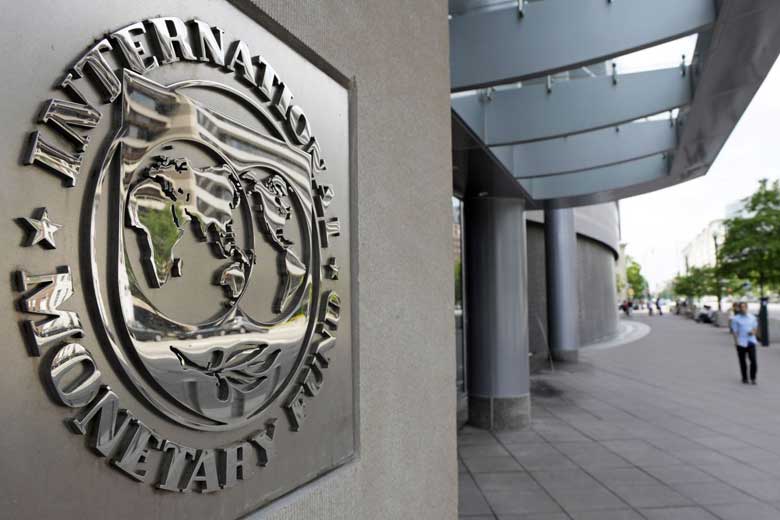The International Monetary Fund weighed in once more with its thoughts on Britain’s referendum, warning the U.K. could slide into a recession if it quits the European Union.
In a 64-page document, the Washington-based fund said that the size of the hit would depend on a multitude of factors, though its overall assessment is that the U.K. “would likely be worse off economically in the long run.”
The IMF also warned of a potential credit squeeze if liquidity markets dry up, which could stymie spending and investment. The Bank of England has moved to preempt this with additional auctions to make funds available to banks before and after the vote.
The IMF delayed publication of the report by a day after campaigning in the referendum was halted following the fatal shooting of Labour Party lawmaker Jo Cox on Thursday. Speaking on Friday, Managing Director Christine Lagarde said her thoughts were with Cox’s family and friends.
‘Adverse’ Scenario
In its report, the IMF presented forecasts for “limited” and “adverse” Brexit scenarios. In the worse situation, it sees growth slowing sharply this year and the economy shrinking 0.8 percent in 2017. The impact would see the economy 5.6 percent smaller by 2019 compared with a baseline forecast, while unemployment would rise above 6 percent and the deficit would be wider.
IMF officials said that a permanent hit to output would probably mean deeper austerity. Chancellor of the Exchequer George Osborne has said an emergency budget would be required within two months of a Brexit to fill a hole in the public finances.
“While recognizing that this choice is for U.K. voters to make and that their decisions will reflect both economic and non-economic factors, directors agreed that the net economic effects of leaving the EU would likely be negative and substantial,” the organization said.
The intervention is not the first from the IMF, which has issued several warnings on the potential impact of Brexit. Lagarde has also defended the organization’s stance, saying that officials are “just doing our job” in presenting their analysis.
The BOE and the Treasury have also issued referendum-related forecasts, and all have been criticized by the pro-Brexit lobby for scaremongering. “Leave” campaigners have also accused the IMF of a poor track record for failing to predict past events such as the 2008 financial crisis.
Quantifying Losses
In the long run, much of the economic impact would depend on what could be negotiated after a vote to leave, the IMF said. There would be direct negative effects from reduced trade access, as the country would be unlikely to quickly establish agreements with other countries. Brexit could also bring losses in productivity, which would be magnified if Brexit were accompanied by restrictions on migration.
Uncertainty during the transition could delay investment and hiring, and some firms may relocate if their business depends on access to the single market, according to the fund. It sees finance and manufacturing as the most vulnerable.
“Exit from the single market would almost certainly reduce market access of U.K.-based financial firms — both domestic and foreign — to the EU, subject them to regulatory uncertainty for some time, and force them to re-examine business models,” the IMF said.
There’s also the potential for a vicious circle where households hold off buying durable goods and property, resulting in weaker demand which in turn pushes up unemployment and further reduces consumption, the IMF said.
The paper estimated that sterling could plunge as much as 15 percent, which would push up inflation to 4 percent — double the BOE’s target. IMF officials also discussed more fundamental economic issues for the U.K., including low productivity growth, the record current-account deficit and high levels of household debt.
The BOE has said it would face a tradeoff between containing inflation and boosting output in the event of a vote to leave. It warned on Thursday that the potential impacts of a U.K. exit from the EU extend beyond Britain, with spillover effects to the global economy. The IMF also highlighted external risks, and said other EU economies are most vulnerable, especially Ireland, Cyprus, Malta, the Netherlands and Belgium.


 Naira4 weeks ago
Naira4 weeks ago
 Billionaire Watch4 weeks ago
Billionaire Watch4 weeks ago


 Naira4 weeks ago
Naira4 weeks ago


 Naira3 weeks ago
Naira3 weeks ago




 Naira3 weeks ago
Naira3 weeks ago




 Naira3 weeks ago
Naira3 weeks ago




 Naira2 weeks ago
Naira2 weeks ago
 Commodities3 weeks ago
Commodities3 weeks ago





















